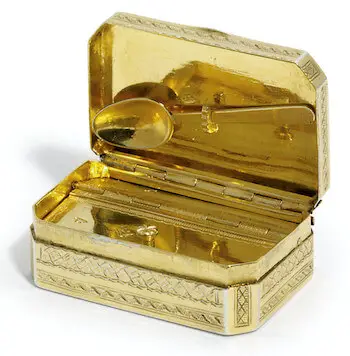Initially, the phrase meant ‘sharp and in the know’; more recently, ‘up to the required standard’.
Up to snuff
What's the meaning of the phrase 'Up to snuff'?
What's the origin of the phrase 'Up to snuff'?
‘Up to snuff’ originated in the early 19th century. In 1811, the English playwright John Poole wrote Hamlet Travestie, a parody of Shakespeare, in the style of Doctor Johnson and George Steevens, which included the expression.
“He knows well enough The game we’re after: Zooks, he’s up to snuff.” &
“He is up to snuff, that is, he is the knowing one.”
A slightly later citation of the phrase, in Grose’s Classical Dictionary of the Vulgar Tongue, 1823, lists it as ‘up to snuff and a pinch above it’, and defines the term as ‘flash’. This clearly shows the derivation to be from ‘snuff’, the powdered tobacco that had become fashionable to inhale in the late 17th century. The phrase derives from the stimulating effect of taking snuff. The association of the phrase with sharpness of mind was enhanced by the fashionability and high cost of snuff and by the elaborate decorative boxes that it was kept in.
The later meaning of ‘up to standard’, in the same sense as ‘up to scratch’ (see also: ‘start from scratch‘) began to be used around the turn of the 20th century.
The history of “Up to snuff” in printed materials
Trend of up to snuff in printed material over time
Browse more Phrases
About the Author

Phrases & Meanings
A-Z
A B C D E F G H I J K L M N O P Q R S T UV W XYZ
Categories
American Animals Australian Bible Body Colour Conflict Death Devil Dogs Emotions Euphemism Family Fashion Food French Horses ‘Jack’ Luck Money Military Music Names Nature Nautical Numbers Politics Religion Shakespeare Stupidity Entertainment Weather Women Work
How did we do?
Have you spotted something that needs updated on this page? We review all feedback we receive to ensure that we provide the most accurate and up to date information on phrases.
